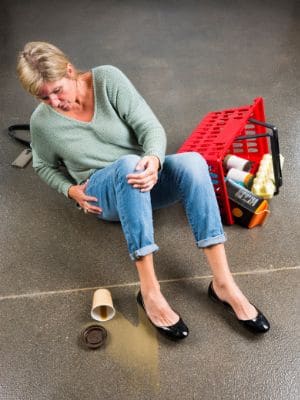Florida’s retail and grocery store owners have a legal obligation to keep their customers safe from harm while shopping in their establishments. When they fail to do so, a customer can become injured or even killed. Generally, stores in Florida are liable for a customer’s injury. That means that if you were injured while shopping at a retail establishment, you may be able to seek compensation for medical expenses and other losses resulting from your injuries under Florida’s premises liability laws.
What Are Premises Liability Laws?
Simply put, Florida’s premises liability laws require property owners to show visitors a certain level of care. There are three main types of visitors:

- Invitee: This is a person invited onto the property for a business or public purpose. In a retail setting, invitees include shoppers, employees, and contractors. Store owners owe invitees the highest level of care.
- Licensee: This is a person who has implicit permission to enter and remain on a property. For instance, if you invite a guest to your house and they show up with another person, say a spouse or relative, the other person is considered to be a licensee. In a retail setting, a licensee might be the relative of an employee who enters a property to deliver a phone the employee accidentally left at home.
- Trespasser: This is a person who does not have permission to enter a property. Because they entered the property against the owner’s wishes, they are generally not owed the same level of care as an invitee or licensee, unless the trespasser is a child.
A certain level of care means that property owners are responsible for protecting their visitors from any foreseeable harm caused by potentially dangerous conditions on their premises.
Dangerous Conditions in a Retail or Grocery Store
In order to keep their visitors safe from harm, property owners and store management need to address any potentially dangerous conditions on their premises. Unsafe store conditions can include:
- Puddles and wet floors
- Uneven carpeting or matting
- Cluttered aisles and walkways
- Overstocked shelves
- Insufficient security
- Haphazardly placed/stacked items
- Poor lighting
- Insufficient signage
- Lack of fire or smoke alarms
- Spoiled/contaminated food and drinks
- Improperly built shelves/racks
- A lack of emergency exits, or unmarked/blocked/locked emergency exits
- Damaged steps or stairways
- Defective escalators/elevators
- Over occupation
- Any unmarked hazard
Examples of Accidents That Can Occur in a Retail Establishment
All kinds of accidents can occur if dangerous conditions are allowed to persist in a retail establishment. A few examples include:
- Slip and fall accidents
- Trip and fall accidents
- Being struck by falling objects
- Crush accidents
- Exposure to hazardous materials
- Assault
These accidents can result in a wide range of serious, even fatal injuries:
- Bone fractures
- Deep cuts
- Traumatic brain injuries
- Burns
- Spinal cord injuries
- Vision or hearing damage
- Head, neck, and back injuries
- Soft tissue and organ injuries
- Food poisoning and related illnesses
- Disfigurement
- Amputation
Filing a Personal Injury Claim for Your Accident-Related Injuries
As stated above, Florida stores are liable for a customer’s injury in many cases. You have a right to seek compensation for any damages caused by the dangerous conditions encountered in a retail or grocery store. These damages can include current and anticipated medical expenses, lost wages and lost employment, pain and suffering, and mental anguish, to name a few. In order to collect this compensation, you’ll have to file a personal injury claim against the store owner and their insurance company.
Collecting this compensation won’t be simple. To prevail, you’ll have to be able to show the following:
- You were legally visiting the store, during open hours, as either an invitee or licensee;
- There were dangerous conditions on the property, that the store owner either was aware of or should have been aware of;
- The owner was negligent in addressing these dangerous conditions or providing adequate warning;
- You were injured as a result of this negligence; and
- You suffered damages as a result of these injuries.
Most people in your situation choose to hire a personal injury attorney with experience in Florida premises liability litigation. A personal injury attorney can help you in many ways by gathering the evidence you’ll need to support your claim as well as help you assign an accurate dollar amount to your damages. Your attorney will also protect your rights and interests during negotiations with the store’s insurance company, ensuring you get the total compensation you deserve for your injuries.
Get Help Determining Whether Florida Stores Are Liable For Customer’s Injury
If you’ve been injured while shopping at a retail establishment, it’s important to take immediate steps to protect your rights. In Florida, there are strict statutes of limitation for filing a personal injury claim. If you wait too long, the courts may refuse to hear your case.
Your first step: contact Rivas Law Group. Tania Rivas is a leading Lutz premises liability lawyer. She has helped clients in Lutz and other Tampa Bay area communities who have found themselves injured and unable to work or pay their bills because of the negligent acts of a retail or grocery store owner. Attorney Rivas isn’t afraid to stand up to the insurance companies; her dedication and legal expertise has earned millions of dollars in settlements for her clients.
Contact Rivas Law Group through our website or call us at (877) 299-5539 to schedule a free initial consultation to discuss your retail premises liability case.



